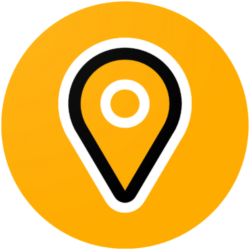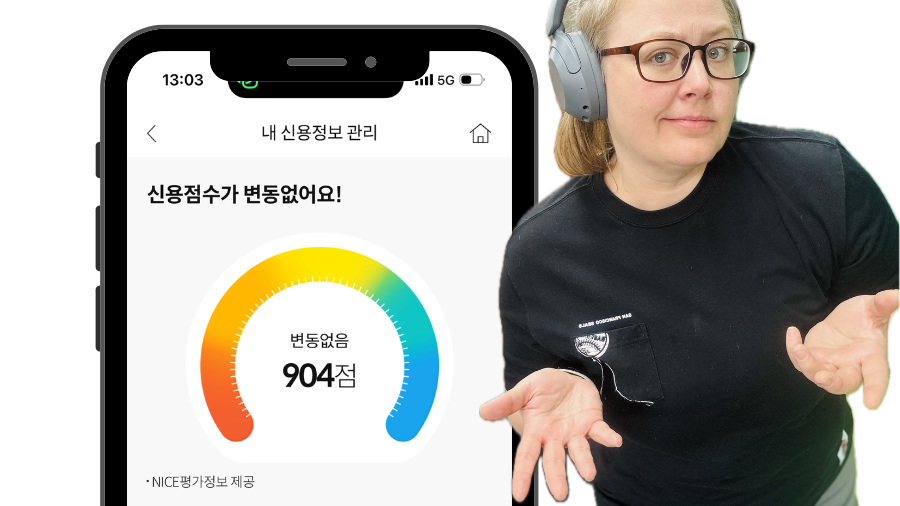
Opening a Bank Account in South Korea
Looking to open a bank account in South Korea as an international resident? Here is what you need to know. If you are US military, please read this blog instead.
About Banking In Korea
Like banking systems around the world, Korean banking is designed for the people of South Korea and Korean social systems. Much like the United States does not allow foreign nationals to freely open bank accounts free of all restrictions, South Korea also has banking requirements for international residents.
This blog post will talk about some (but not all) of the ways South Korean banks may be different from US banks. Like all countries, South Korea has its own banking culture. Understanding some of the ways banking in South Korea differs from your home country may help the transition go more smoothly.
Types of Korean Banking Organizations
Like in other countries, there are different types of banking institutions in South Korea. There are virtual banks like Kakao Bank, International banks, Credit Unions, National Banks, etc. Each of these banking institutions, much like the United States, has different rules which govern what they can and can’t do and who they can and can’t serve.
A List of South Korean Credit Unions
- Credit unions (신협)
- Saemaeul finance association (새마을금고)
- Agricultural cooperatives (농업협동조합, 농협) (ie Nonghyup)
- Fisheries cooperatives (수산업협동조합, 수협)
- Forestry cooperatives (임업협동조합, 임협)
Korean Credit Unions May Be Difficult to Work With
Many foreigners do not have successful banking experiences with Korean credit union-style banks such as Nonghyup. Historically speaking Nonghyup does not invest heavily in supporting international residents. This includes such issues as name fields that don’t support full foreign names. Difficulty syncing foreign information across platforms and poor foreign language services.
This can be frustrating since many employers may require a Nonghyup Bank account. In such situations, many international residents choose to open a second bank account with a more supportive bank. They then transfer their money from the credit union to the large bank after payday.
A List of Banks In South Korea
- Bank of Korea: www.bok.or.kr
- Barclays: www.barclays.com
- BNP Paribas: www.bnpparisbas.com
- Citibank: www.citibank.co.kr
- HSBC: www.hsbc.co.kr
- ING: www.ing.com
- Kookmin Bank: www.kbstar.com
- Korea Development Bank: www.kdb.co.kr
- Korea Exchange Bank (KEB Hana): https://www.kebhana.com/
- Shinhan Bank: www.shinhan.com
- Standard Chartered (First) Bank www.scfirstbank.com
- Woori Bank: www.wooribank.com
List of Criteria to Consider for Choosing a Bank
Choosing the best bank depends on individual needs and expectations. South of Seoul volunteers recommend considering the following information when choosing a bank:
- Location – Can you easily access the bank?
- Hours of operation – Does the bank have any locations with weekend hours?
- English smartphone app – Does the bank offer an English smartphone app for managing money?
- English support via phone – Can you call an English-speaking representative and ask for help?
- Credit Cards for foreigners – Can you grow with this bank? Will they offer the services you need in the long term?
- Transfer fees – What special accounts or transfer rates do they have if you transfer money home?
- English website – Does the bank have an English website that you find useful?
- International locations – Do they have a branch in your home country or other countries you travel?
- Can their system handle long foreign names? Since Korean names are short, some of the banking systems created systems that can’t handle long names. Therefore, you may be limited in options if you have a very long name.
Commonly Recommended Banks for International Residents
The following Recommended Banks do not mean that other national Korean banks will not work with individuals associated with the US military. Such a list simply denotes the banks South of Seoul volunteers have documented the most successful US military personnel and DODEA-affiliated personnel experiences at certain bank branches.
This Recommended Banks for the US Military list may be subject to change based on Korean law and branch rules. The following banks have a history of offering checking accounts to US Military affiliated people at branches near US Military installations.
- Korea Exchange Bank (KEB Hana): https://www.kebhana.com/ (Domestic English Support 1599-6111)
- Shinhan Bank: www.shinhan.com (Domestic English Support 1577-8380)
- Kookmin Bank: www.kbstar.com (Domestic English Support 1599-4477)
South of Seoul volunteers recommend calling to talk to banks to learn about the checking accounts in English prior to visiting a local bank branch to open your account. Calling before visiting a local bank may help you feel prepared with the correct paperwork and knowledge of what type of account you need to open. Such knowledge may make it easier to work with the teller who may have little to no English ability
Documents Needed for Opening an Account
International residents will need the following documents when applying for a bank account.
- Foreign Registration Card (FRC/ARC)
- passport (yeogwon/여권)
- Korean visa (This may be in your passport or your FRC card)
- Korean phone number in your name (hangungnae__jeonhwabeonho/한국내 전화번호
- Employment Contract. (Some banks may require this to establish withdrawal limits and set up certain account features. In other words, it may not be required but it is recommended.)
You want to make sure that your bank account is synced with a phone in your name and now a phone under contract with someone else:
We highly recommend reading the South of Seoul post about how Korean resident systems links across phone and banking systems. Understanding that your bank account is part of a system may help you better understand the hurdles you face when first arriving in South Korea.
Issues Within Korean Banking for International Residents
You may run into a variety of issues banking as an international resident in South Korea. Some of the issues which may exist are as follows.
Some Online Only Banks Not Available to Foreigners
Many International Residents do not have access to most online Korean banks. Online banks are those banks that exist in only a virtual context. They do not have in-person locations. Such banks are new to Korea. Online banking rules and systems are slowly changing to make space for international residents.
Account Types Vary by Visa Type
Available account types may vary based on visa type, the nation of origin, and other factors. This means different international residents with different jobs may have access to different withdrawal limits, transfer limits, and more. Such differences may vary by the credit union or bank.
No Joint Accounts for Couples
Korea does not offer joint accounts for married couples. Each person should have a separate account. The need for separate accounts ties into taxation and residency systems.
Additional References
Since banking experiences vary widely across the international community based on a person’s nation of origin, visa type, location, and location – we recommend reading a variety of posts on the topic. Here are 5 posts we recommend:
- US Military Banking In Korea
- International Students Banking in Korea
- General Banking In Korea
- Transferring Money to and From Korea
- 4 Ways to Transfer Money Out of Korea
- No Joint Married Accounts in Korea
Lived Experience Vlogs
The Korean banking system does not mirror the US banking system (but does have more in common with many European systems) it can be quite frustrating for many. This may cause a crisis when you don’t understand how the system works due to language barriers and hidden culture.
Depending on a person’s lived experience, they may have different types of struggles. It’s impossible to include all the struggles experienced by all international residents. However, we would like to share one such perspective to help new arrivals understand how they may struggle when first learning the system.
Keep in mind when viewing or reading all content online. Such videos represent one lived experience based on their worldview. Your experience and your issue may differ. Additionally, such videos are often created by well-meaning people in crisis. Such creatures may or may not fully understand the systems which they explain. (This includes our content. Never make choices based on one life lens.)

Founded in 2015, the South of Seoul team consists of volunteers on three continents working together to support English-speaking people traveling or living in South Korea. South of Seoul volunteers work with organizations and individuals across South Korea to improve equitable access to information across South Korea. Much of South of Seoul’s information focuses on Pyeongtaek, Gyeonggi-do, South Korea.
Blogs published under the authorship of “South of Seoul” include blogs compiled by multiple volunteers to improve access to standardized information unrelated to individualized personal experiences.




